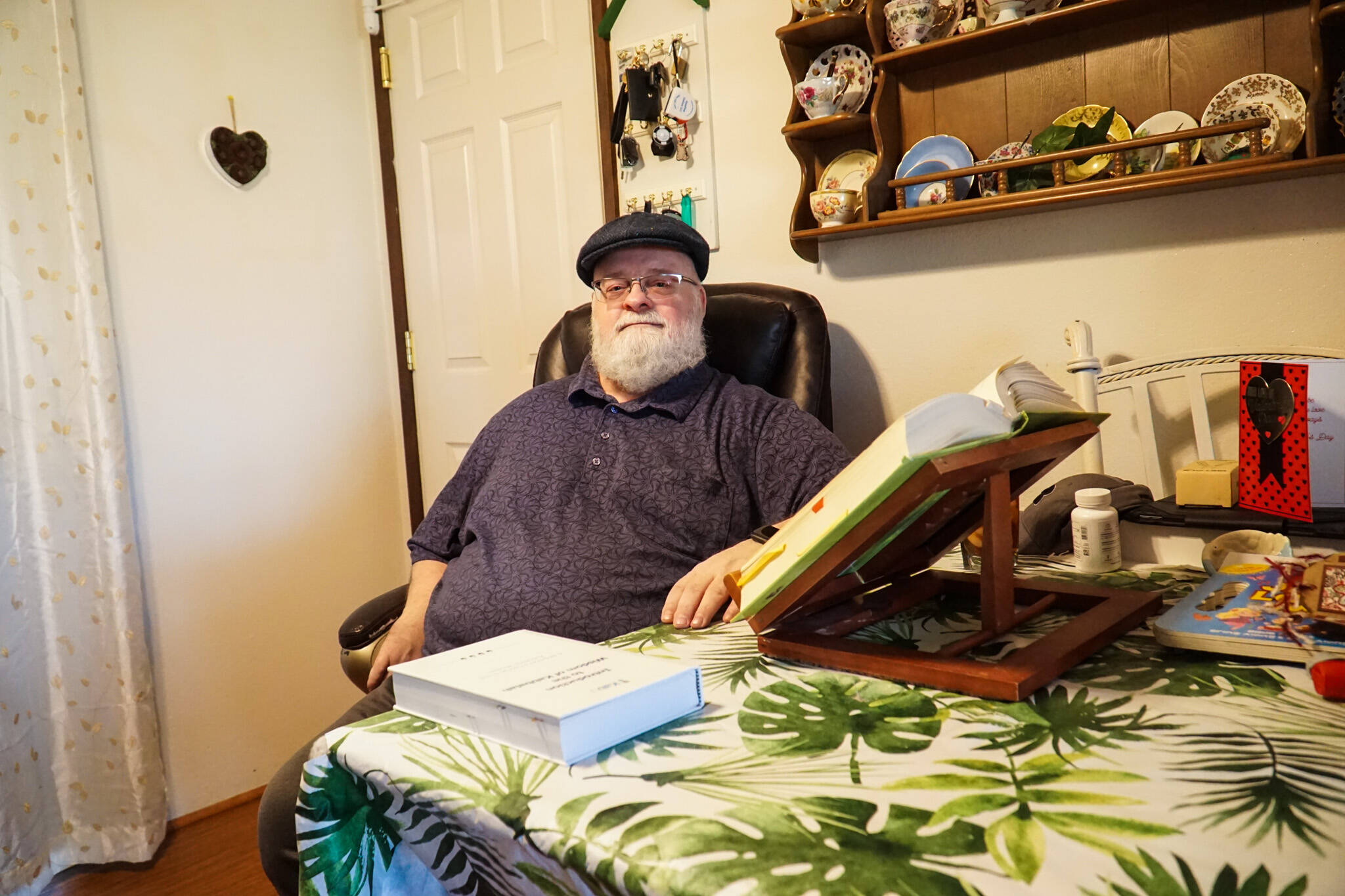When someone begins to study Kabbalah, they might be surprised when most of the questions come from the teacher. What are your intentions? What do you seek? What do you believe?
For the past 25 years, Oak Harbor native David Robbins has led Kabbalah study sessions in his home.
Kabbalah, meaning “reception” in Hebrew, is an esoteric method originating in medieval Judaism and in some respects is meant to explain the relationship with the unchanging, eternal God, the mysterious Ein Sof or The Infinite and the mortal, finite universe. Practitioners understand that they are egoistic parts of a unified whole living beneath a perfect upper force they will one day join. They strive to unify with one another to get closer to this force.
Traditional practitioners believe Kabbalah pre-dates world religions and resides entirely out of Judaism and other influences. This is what Robbins teaches.
Kabbalah is a scientific lens into spirituality, Robbins said, but instead of building empirical data from the outside world, it gives methodology to examine and analyze within to understand the ideas that are taught.
Kabbalah is not a religion, Robbins said, but more so a mystical process for understanding that can be applied to any school of thought.
“It’s not about magic or witchcraft or Judaism or anything else that you could associate with it,” he said. “It actually stands on its own.”
In any teaching, there are four levels of interpretation. Peshat is the direct understanding of what is given. Remez is the metaphoric understanding. Derash is the critical or analytical understanding, and Sod is the hidden, esoteric understanding.
“This is the secret level,” Robbins said. “It’s not about some secret handshake, nothing like that. It’s just the hidden level that you don’t really understand until your studies reveal a deeper meaning to you.”
In 1998, when he was living in Los Angeles, Robbins suffered from depression, he said. A psychiatrist recommended leaning on a religion or philosophy. At the same time, he was receiving Kabbalah pamphlets in the mail.
After he started studying, Robbins didn’t seek out teaching, he said. He was chosen.
A teacher from the Bnei Baruch Kabbalah Education & Research Institute visited from Israel and gave a talk, where Robbins met him. The teacher told him he had to teach, Robbins said, and that he didn’t have a choice.
“It goes back to that old saying that when you’re ready, the teacher will appear,” he said. “The future will come, and sometimes you have to do what you’re uncomfortable with.”
At the time, Robbins struggled speaking in front of people, he said. Through Kabbalah, he learned that this fear came from what he knew about other religious teachers who researched and prepared for a lesson. Kabbalah, instead, taught him to set his intention and focus on the students’ wellbeing as opposed to himself.
“You do have to study, but that’s on a regular basis,” he said. “As far as the teachings, you actually focus on making sure you have the right intention.”
Robbins doesn’t hope for a certain number of students, he said, but the right students—people who honestly wish to learn for the right reasons. Sometimes, people are hesitant about the spiritual side of the practice, and it takes them a while to open up. Other times, students come in with the understanding that the practice is early Jewish mysticism and want to learn magic.
A lot of those false notions come from modern writings on the subject, Robbins said.
“People just use it to make a buck or something other than spirituality, and that’s fine,” he said. “It’s just not what we teach. It really has nothing to do with it.”
Many students want to study Kabbalah for a better understanding of their organized religion, he said. Studying Kabbalah in a Christian context can cause deeper interest in spirituality, and students can discover deeper connections that they couldn’t make with typical bible study. This can be applied to any religion.
Robbins teaches from a more spiritual aspect than physical.
“People are like, ‘how does that apply to my worship of this or the philosophy of this person?’ You can’t really compare them on a normal basis. It’s something that you just have to study and then within yourself you actually find the answer.”


